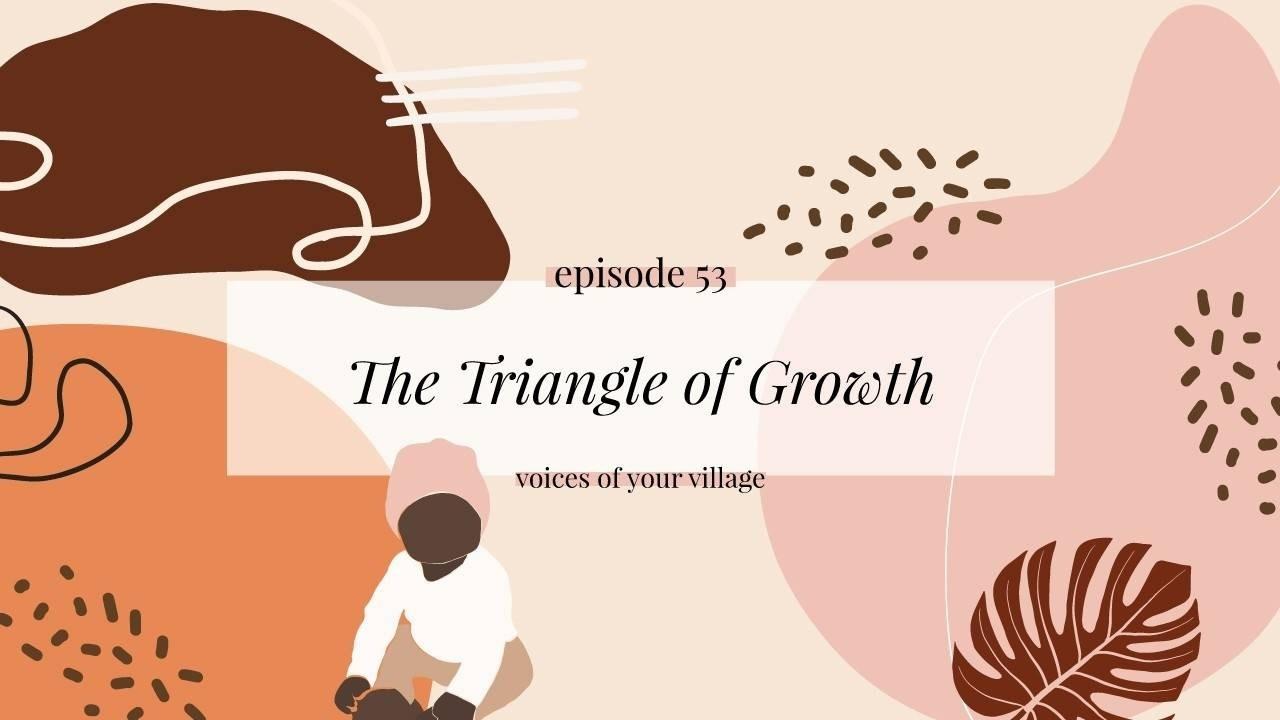The 3 things I pay attention to developmentally birth-five

In this week's episode I dove into something I call the triangle of the growth. When I’m looking at tiny human development I’m looking at three things. I’m looking at the sensory system, emotional development, and at speech and language. These systems are incredibly interconnected and in order to get a full picture of development, we really need to consider all three.
We all use our sensory system all day long, every single day. The feeling of a chair supporting our bodies, the sound of music playing in the car, the feeling of our clothes on our skin. All of these things are processed by our sensory system. If the sensory system is overloaded and working hard to process the daily influx of information, it can make it difficult for the brain to focus on something different, like speech and language.
When I look at emotional development, I’m looking at whether or not kiddos are able to process emotions. Can they feel emotions and then know where to go from there? Are they assured that the hard feelings are temporary? Can they tap into coping strategies? Looking at all of that with age and development in mind, I can get an idea of whether or not a kiddo is experiencing any roadblocks that may point to sensory or language challenges.
Finally, I’m looking at speech and language. An overloaded sensory system can make speech and language more challenging. This can translate into difficulty with emotional processing. Simple changes in how you talk to your kiddo can help foster speech and language development. Using nouns instead of pronouns and asking open-ended questions can be helpful. And talking to our children with deep empathy (total focus, body language, tone, etc all showing empathy) can also help to foster not just speech and language but the entire triangle of growth.
When I’m looking at these things, I’m not just looking to see if a tiny human is walking “on time” or if they are on par with their peers. I’m looking to determine if there are any roadblocks for the kiddo, like sensory challenges. I want to remove any judgment around support services for kiddos. If a kiddo is experiencing a roadblock, early intervention can be a game-changer. The brain is developing at such a rapid pace; these early years are the optimal time to make lasting change. Often when I see something like a language delay, it really goes back to a sensory challenge. If the brain is working overtime to get the body to do what it wants, language becomes much more difficult. So addressing that sensory challenge early on helps to ensure that the kiddo won’t continue to be hindered by that challenge.
If you’re interested in learning more, you can tune into Episode 4: Diving into the Sensory System with OT, Lori Goodrich. You can also tune into Episode 10: All things language development with SLP, Sarah Friel. Both of those episodes dive deeper into those specific systems of development. You can also go to seedandsew.org and search for “speech” or “sensory” and it will pull up any relevant episodes or blog posts.
It’s so important to me that we reduce the stigma around getting support and services for our kiddos. In many states, if a kiddo qualifies, the services are free. These services can build a toolbox that both the kiddo and parent can use to continue to help the kiddo thrive even after they are done receiving services. It can really change the game for a child. There is nothing wrong with your child, and you haven’t failed as a parent. It’s not our job to have all the answers. It’s our job to identify roadblocks and work through them.
